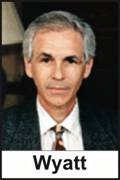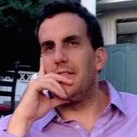Rascals case in brief
In the beginning, in 1989, more than 90 children at the Little Rascals Day Care Center in Edenton, North Carolina, accused a total of 20 adults with 429 instances of sexual abuse over a three-year period. It may have all begun with one parent’s complaint about punishment given her child.
Among the alleged perpetrators: the sheriff and mayor. But prosecutors would charge only Robin Byrum, Darlene Harris, Elizabeth “Betsy” Kelly, Robert “Bob” Kelly, Willard Scott Privott, Shelley Stone and Dawn Wilson – the Edenton 7.
Along with sodomy and beatings, allegations included a baby killed with a handgun, a child being hung upside down from a tree and being set on fire and countless other fantastic incidents involving spaceships, hot air balloons, pirate ships and trained sharks.
By the time prosecutors dropped the last charges in 1997, Little Rascals had become North Carolina’s longest and most costly criminal trial. Prosecutors kept defendants jailed in hopes at least one would turn against their supposed co-conspirators. Remarkably, none did. Another shameful record: Five defendants had to wait longer to face their accusers in court than anyone else in North Carolina history.
Between 1991 and 1997, Ofra Bikel produced three extraordinary episodes on the Little Rascals case for the PBS series “Frontline.” Although “Innocence Lost” did not deter prosecutors, it exposed their tactics and fostered nationwide skepticism and dismay.
With each passing year, the absurdity of the Little Rascals charges has become more obvious. But no admission of error has ever come from prosecutors, police, interviewers or parents. This site is devoted to the issues raised by this case.
On Facebook
Click for earlier Facebook posts archived on this site
Click to go to
Today’s random selection from the Little Rascals Day Care archives….
Click for earlier Facebook posts archived on this site
Click to go to
Today’s random selection from the Little Rascals Day Care archives….
What jurors learned from ‘Every Mother’s Worst Fear’
April 2, 2012
Among the contaminants reported in the deliberations of the first Little Rascals jury was a Redbook article used to profile Bob Kelly as a child molester. Its content never was detailed, so I looked it up (thanks yet again, Charlotte Mecklenburg Library).
Beneath the panic-inducing headline – “Why I’m Every Mother’s Worst Fear” – I was surprised to find virtually nothing relevant to day cares. Instead, the author offered insights such as:
“There are far more child molesters who operate like me than there are those who forcibly kidnap children. What the abductors do makes the headlines. What I do is more common and less noticeable. Most child molesters are established in our communities, known to others as just another good neighbor. We may even be married with kids of our own.”
An editor’s note drove home the point: “Finally, believe a child who reports a sexual overture or encounter, no matter how respectable or unlikely the accused person might seem.”
These descriptions, of course, fit the crazy-making template for ritual-abuse prosecutions:
If he seems like a child abuser, then he is.
If he doesn’t seem like a child abuser, then he is – “no matter how unlikely.”
Kelly defenders risked ‘financial and social suicide’
July 13, 2015
Throughout the long unfolding of the Little Rascals Day Care prosecution, outsiders often sought to determine the “mood of Edenton.” This was a challenging task even in the early days of the case, and it became just about impossible after the first “Innocence Lost” episode cast the town in a starkly unflattering light.
The default response to anyone with a notepad: Go away.
In 1996, however, a defense attorney weighing Edenton as a site for Bob Kelly’s possible retrial had better luck. His case notes include this candid and chilling evaluation from a longtime Edentonian:
“(The resident) didn’t believe that any of the defendants, but especially Bob, had a chance of getting a fair trial in Edenton. Although the constant talk of Little Rascals has died down, he said people still wouldn’t dare mention the idea of innocence. He believes that probably half of (Chowan County) either doesn’t believe Bob did it or at least not to the extent alleged. He believes the largest group of ‘nonbelievers’ to be those of lesser means, and especially minorities.
“He said that anyone of means or in any type of business in town would be committing financial and social suicide if they voiced any belief in Bob’s innocence.
“He said that even if he knew Bob to be innocent, or less guilty than charged, he would have a hard time voting so as a juror in light of the lifelong social repercussions. If there was even one or two jurors who believed Bob was guilty, they would be able to pressure everyone else into voting with them….”
Lamb ‘continues to hold herself out as an expert’
 April 23, 2012
April 23, 2012
In 2007, W. Joseph Wyatt, writing in the professional journal The Behavior Analyst Today, looked back at the Little Rascals case:
“Prosecutors appeared to have little appreciation for the possibility, or likelihood, that they were pursuing innocent people. Prosecutorial fervor for the case evidently persisted long after it had become clear that the case had taken a series of wrong turns.
“Despite the disastrous results, one of the prosecutors continues to hold herself out as an expert. As recently as November, 2006, Nancy Lamb, still working as an assistant district attorney, was co-presenter of a training program for professionals titled ‘The Necessary Components of a Legally Defensible Child Sex Abuse Investigation.’ ”
If for no other reason, the Little Rascals case demands continued public attention as long as Nancy Lamb remains at large, presenting her cruelty and deviousness as a model for future prosecutions.
Update: At a 2010 workshop for the North Carolina Conference of District Attorneys, “Nancy Lamb… presented on how to defend the forensic interview in the courtroom.”
View from 1908: ‘The lawyer alone is obdurate’

iastate.edu
Paul Kix
May 5, 2016
“Psychologists have long recognized that human memory is highly fallible. Hugo Münsterberg taught in one of the first American psychology departments, at Harvard. In a 1908 book called ‘On the Witness Stand,’ he argued that, because people could not know when their memories had deceived them, the legal system’s safeguards against lying – oaths, penalties for perjury, and so on – were ineffective.
“He expected that teachers, doctors, and politicians would all be eager to reform their fields. ‘The lawyer alone is obdurate,’ Münsterberg wrote.”
– From “Recognition: How a travesty led to criminal-justice innovation in Texas” by Paul Kix in the New Yorker (Jan. 18)
Dr. Munsterberg saw clearly the stubbornness of lawyers, even if he may have overestimated the open-mindedness of those other callings.
![]()











0 CommentsComment on Facebook